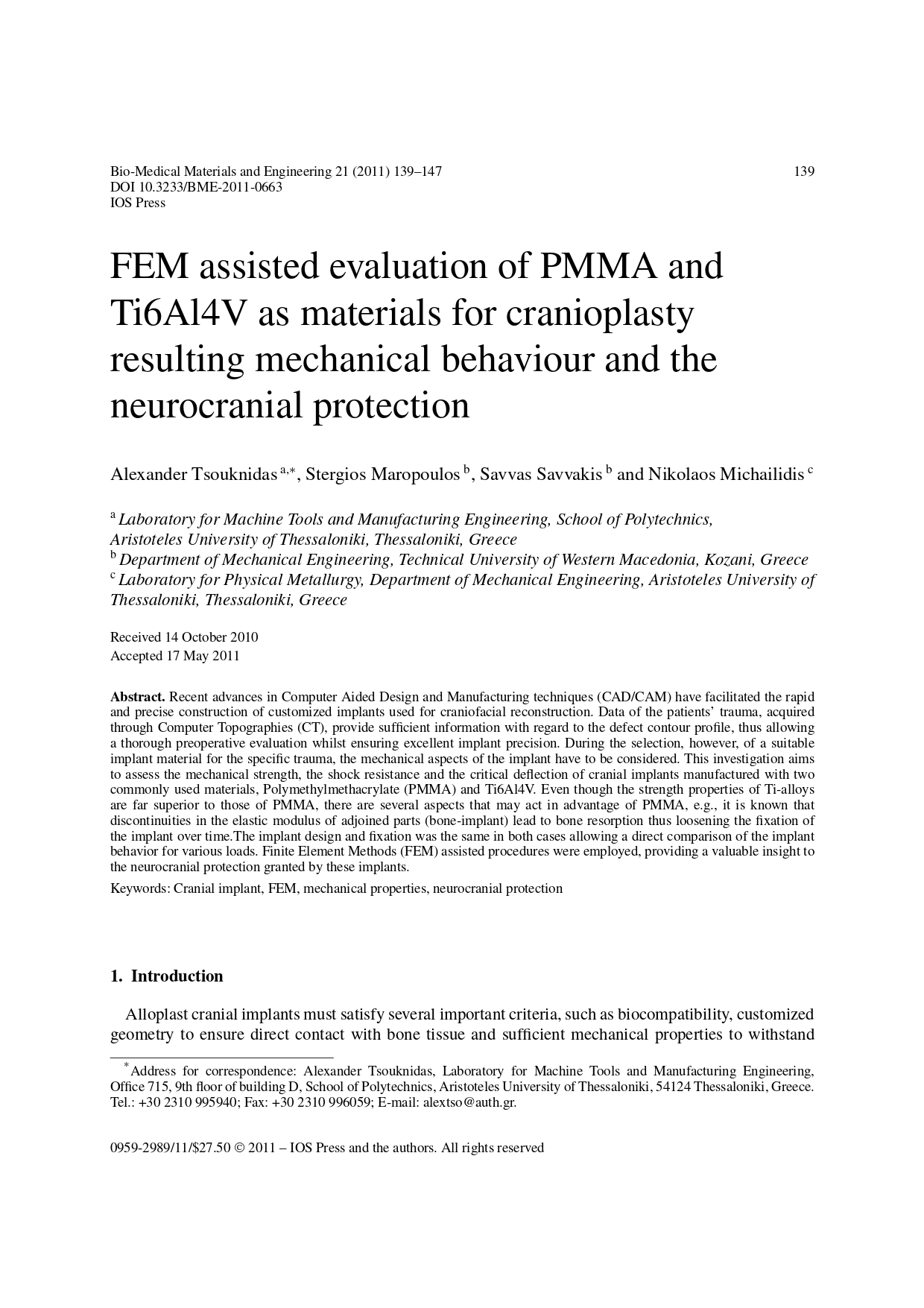Τitle
FEM assisted evaluation of PMMA and Ti6Al4V as materials for cranioplasty resulting mechanical behaviour and the neurocranial protection
FEM assisted evaluation of PMMA and Ti6Al4V as materials for cranioplasty resulting mechanical behaviour and the neurocranial protection
Bio-Medical Materials and Engineering, 21 (3), pp. 139-147.
Recent advances in Computer Aided Design and Manufacturing techniques (CAD/CAM) have facilitated the rapid
and precise construction of customized implants used for craniofacial reconstruction. Data of the patients’ trauma, acquired through Computer Topographies (CT), provide sufficient information with regard to the defect contour profile, thus allowing a thorough preoperative evaluation whilst ensuring excellent implant precision. During the selection, however, of a suitable implant material for the specific trauma, the mechanical aspects of the implant have to be considered. This investigation aims to assess the mechanical strength, the shock resistance and the critical deflection of cranial implants manufactured with two commonly used materials, Polymethylmethacrylate (PMMA) and Ti6Al4V. Even though the strength properties of Ti-alloys are far superior to those of PMMA, there are several aspects that may act in advantage of PMMA, e.g., it is known that discontinuities in the elastic modulus of adjoined parts (bone-implant) lead to bone resorption thus loosening the fixation of the implant over time.The implant design and fixation was the same in both cases allowing a direct comparison of the implant behavior for various loads. Finite Element Methods (FEM) assisted procedures were employed, providing a valuable insight to the neurocranial protection granted by these implants.
